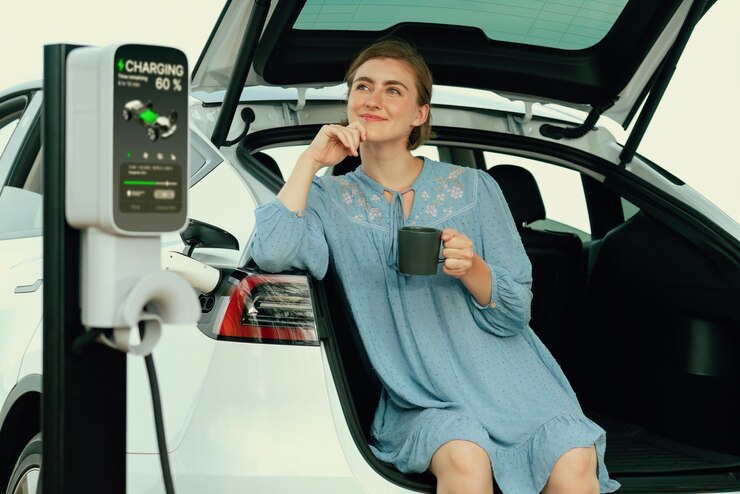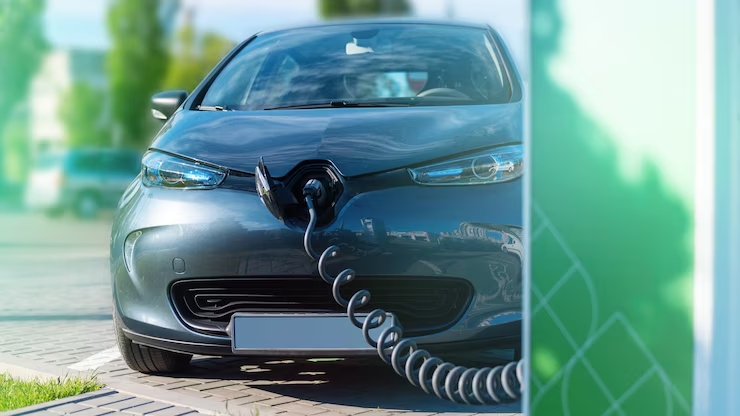Introduction
For over a century, the world has run on the roar of internal combustion engines — a symphony of speed, smoke, and steel. But in recent years, a quieter revolution has begun humming through the streets. Electric cars, once seen as futuristic novelties, are now claiming their place on the global stage. This is not just a shift in transportation; it is a transformation of our relationship with energy, environment, and innovation. Welcome to the era of silent power.

The Quiet Awakening
The first electric cars date back to the late 1800s, but they were soon eclipsed by gasoline-powered vehicles, which offered greater range and faster refueling. Now, thanks to technological advances, environmental urgency, and changing consumer attitudes, electric vehicles (EVs) are making a powerful comeback.Unlike traditional cars, EVs produce no tailpipe emissions and run almost silently, giving them a unique advantage in a world increasingly concerned about pollution and climate change. Their quiet hum replaces engine growls, signaling a new kind of power — one that doesn’t shout, but whispers with efficiency.
Technology Drives the Change
The heart of an electric car is its battery. Over the last decade, lithium-ion battery technology has improved dramatically. Today’s EV batteries offer longer ranges, faster charging, and greater durability than ever before. Brands like Tesla, BYD, and Hyundai are pushing boundaries with models that can travel over 500 kilometers on a single charge.Charging infrastructure has also grown rapidly. From public charging stations in shopping malls to fast chargers along highways, the EV ecosystem is becoming more convenient and accessible. Many countries now offer home charging solutions, making owning an electric car as simple as plugging in your phone.
Environmental Impact
Perhaps the most compelling argument for electric vehicles is their role in reducing greenhouse gas emissions. While the production of EVs — especially batteries — does consume energy and raw materials, the lifetime emissions of electric cars are significantly lower than those of fossil-fueled counterparts.In cities plagued by smog and noise pollution, electric cars offer a breath of fresh air — literally. By cutting tailpipe emissions to zero, they help improve urban air quality and reduce health risks for millions. Countries like Norway and the Netherlands are already seeing these benefits firsthand, thanks to aggressive EV adoption policies.
Economic Shift and Job Creation
The rise of electric cars is reshaping the global auto industry. Traditional automakers like Ford, GM, and Toyota are investing billions into EV research and production. At the same time, new players such as Rivian and Lucid Motors are emerging with innovative approaches and fresh designs.This transformation is not only technological but economic. As the demand for batteries, electric drivetrains, and charging infrastructure grows, new industries and job opportunities are emerging. From mining lithium and cobalt to building solar-powered charging stations, the green economy is accelerating.
Government Policies and Global Push
Many governments are supporting this shift with incentives and regulations. Tax rebates, free parking, reduced tolls, and exemption from congestion charges make EVs more attractive to consumers. On the policy front, several nations have announced bans on the sale of new gasoline and diesel vehicles within the next two decades — signaling a clear direction for the future.China, the world’s largest EV market, is aggressively investing in electric mobility as part of its broader sustainability goals. Europe is following suit with strict emissions targets and climate commitments under the Paris Agreement. Even in traditionally oil-heavy countries, the EV tide is rising.
Challenges and Roadblocks
Despite the momentum, the road to full electrification is not without bumps. Battery production remains resource-intensive, with concerns over the ethical sourcing of materials like cobalt. Charging infrastructure in rural areas still lags behind, and EVs can be expensive upfront, even though running costs are lower.Moreover, grid capacity and renewable energy generation must keep pace with growing electricity demands. Without a clean power supply, the environmental benefits of EVs could be compromised.
The Cultural Shift
Electric vehicles are not just a technological trend — they represent a cultural change. Younger generations view cars differently, prioritizing sustainability, connectivity, and design over horsepower. EVs are often equipped with cutting-edge tech, including autonomous driving features, smart dashboards, and mobile integration.Car ownership itself is evolving. From ride-sharing platforms to electric scooters and bikes, the future of transport is multi-modal, and EVs are at the center of this transformation.

Conclusion:
The rise of electric cars marks a pivotal moment in history. It is a response to the climate crisis, a triumph of innovation, and a vision of a cleaner, quieter future. With silent motors and bold ambition, EVs are redefining what it means to drive — not just from point A to B, but toward a better world.Silent power is no longer a distant dream. It’s here, gliding down our roads, whispering of change, and urging us to listen.

